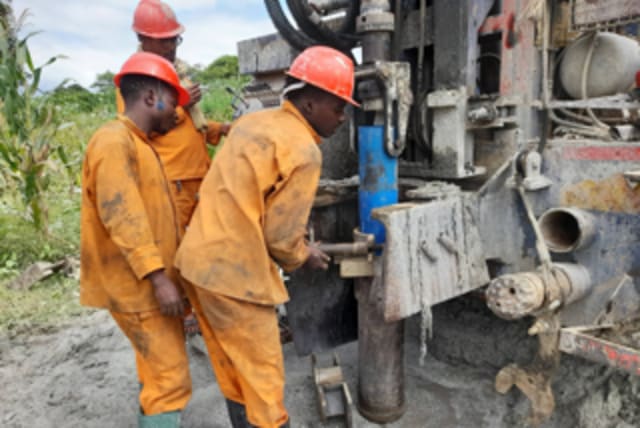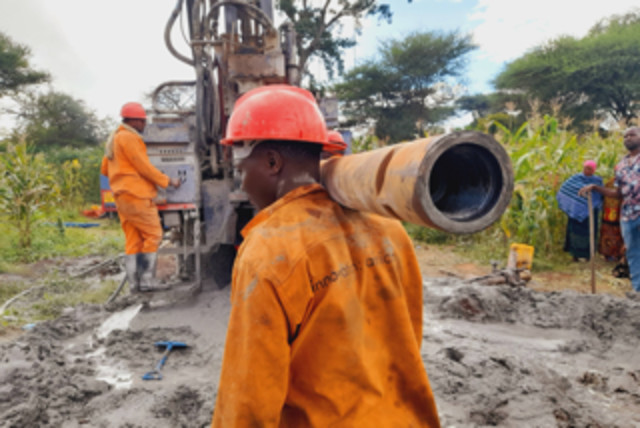Tanzanian village transformed by US-Israel clean water project

Through a geophysical survey by Innovation: Africa, Water 4 Mercy tapped into an underground aquifer to access freshwater.
In a historic move, the village of Ausia in Kondoa, Tanzania, has been provided with life-changing access to fresh water.
The Water 4 Mercy initiative—undertaken in collaboration with Israeli partners Innovation: Africa, Cultivaid and the Don Bosco Technical Institutes—began in May 2023.
Home to 3,021 people, the Tanzanian village of Ausia had struggled with the absence of clean water, forcing villagers to travel miles during dry seasons to reach compromised water sources. This resulted in a high prevalence of waterborne diseases that particularly affect women, who traditionally are tasked with water retrieval, and who face injuries, animal attacks, and even instances of rape.
“We are overjoyed to expand the efforts of Water 4 Mercy into the Ausia village, bringing dignity to these villagers and empowering them to overcome the deeply rooted cycles of poverty they have faced for generations,” Water 4 Mercy's Founder and CEO Nermine Khouzam Rubin said.
Tapping into an abundant source of freshwater
Through a geophysical survey by Innovation: Africa, Water 4 Mercy tapped into an underground aquifer to access freshwater. Thorough water quality assessments were conducted, water pumps and solar panels were installed, and a 10,000-liter water tank system was set up with the help of local villagers.
The project includes strategically placed taps for easy access throughout the village, excavation for pumping groundwork, and remote monitoring technology for seamless operation and troubleshooting.
Since its inception less than five years ago, Water 4 Mercy has impacted over 67,000 Africans through partnerships with 18 communities in Tanzania and Kenya.
The organization employs a unique three-pronged approach, combining water access, agricultural training, and community engagement to empower local residents and break the cycle of poverty. The model ensures long-term sustainability and the ability of recipients to maintain their own communities.
Jerusalem Post Store
`; document.getElementById("linkPremium").innerHTML = cont; var divWithLink = document.getElementById("premium-link"); if (divWithLink !== null && divWithLink !== 'undefined') { divWithLink.style.border = "solid 1px #cb0f3e"; divWithLink.style.textAlign = "center"; divWithLink.style.marginBottom = "15px"; divWithLink.style.marginTop = "15px"; divWithLink.style.width = "100%"; divWithLink.style.backgroundColor = "#122952"; divWithLink.style.color = "#ffffff"; divWithLink.style.lineHeight = "1.5"; } } (function (v, i) { });

